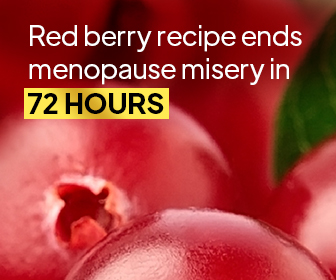It’s something that is so common and so easy to overlook. An upset stomach is often mistaken for something that you ate or some passing illness. It is of course easy enough to get an upset stomach from the flu, from food poisoning, or even in reaction to medication or some other outside stimulus.
While this is all true and stomachache is often nothing to worry about, there are times when the stomachache is a sign of something deeper. You have to look at the frequency of the symptoms as well as how often you are having these issues. If you find that the upset stomach is happening all the time or intensifying, then it may be something rather significant.
You Want to Keep Track of Your Symptoms
It is in taking a long hard look at your symptoms that you may wonder if perhaps you are dealing with something as serious as Crohn’s disease. This may not be the first thing to come to mind, but it should certainly be a consideration. If you can’t get your symptoms under control or if they continue to worsen, then you need to seek help.
It’s important for you to gain some insight into what this disease is and how it may be affecting you. Though Crohn’s disease may sound like a scary health issue, help is available and it can be treated. First you want to understand what it is, how it could affect you, and then work through to possible treatments.
An Overview of the Disease
It’s easy to understand why Crohn’s disease is so often mistaken for something else — it is a disease for which you can’t get a full diagnosis until some tests are run. In many cases when it gets to the point where tests are needed, the disease is already in full force. To put it quite simply, Crohn’s disease is characterized by inflammation of the digestive tract. This is unlike any other inflammation though because it is actually an inflammatory bowel disease.
The layman may not understand what this means, but inflammatory bowel disease falls into a category all its own. The most notable part of this disease is that there is inflammation present — inflammation that actually causes the symptoms that you notice. It may be though that the inflamed digestive tract has been that way for a while — the symptoms may come a bit later.
Your Symptoms Can Tell a Story
Crohn’s disease causes inflammation that begins in the digestive tract but can spread.[1] In some instances, the symptoms may not be too serious, but you will know when something is wrong. You recognize when the symptoms are persisting or worsening, and it may be caused by the inflammation spreading to other parts of the stomach and the surrounding area.
This is why getting a proper diagnosis early on is so important — it may impact how long you suffer with Crohn’s disease or how bad the symptoms may get. Nobody really knows what causes the onset of this disease. It may be hereditary, or it may develop from a long history of unhealthy habits. It may develop for no reason at all, and therefore this is where you have to be your own best advocate.
Common Symptoms You Might Expect
It’s always important to note that the symptoms and the way that they present will vary from one disease to another depending upon the individual, the specific case of Crohn’s disease, if there are any other health problems present, family history, and other such related issues. No two people with this disease may be the same, so don’t expect the symptoms to be identical.
It is also important to understand if this disease is in an active state or more dormant. If you are in a great deal of pain or there are a variety of different symptoms, then it may be in an active state. If, however things seem to calm down and you are able to cope, then it may be more dormant. Unfortunately, many people confuse symptoms of Crohn’s disease for just an upset stomach when the condition temporarily gets better.
Here are some of the most common symptoms that you may expect with Crohn’s disease, particularly if it is in an active state:[2]
- Abdominal cramping and pain
- Diarrhea
- Inability to hold food down
- Vomiting
- Blood in stools
- Reduced appetite
- Weight loss
- Pain near the anus due to inflammation and diarrhea
If Crohn’s disease is in a dormant phase, the symptoms may lessen. Not only that but they may go away altogether for a while before they return quickly and in a worse way. Don’t be fooled into thinking that, if the symptoms are gone, you’re not dealing with Crohn’s disease.
If this condition has gone on for too long, there may be additional issues. You might find that you have inflammation of other parts of the body because it just continues to spread. These symptoms may be visible such as inflamed skin or eyes, or it may be more internal such as inflammation of the liver or even joints.
If this is the case, then it’s important to get evaluated to determine if this is the disease you are dealing with or not. There are many different symptoms and you must figure out which ones apply to you, how often they are showing up, and if they continue to worsen over time.
How Does It Compare to Other Digestive Issues?
The problem with Crohn’s disease is that it is often mistaken for something else. Not only that but until proper diagnosis and evaluation takes place, you can’t really be sure what you are dealing with. That being said, there are many instances where you might find that Crohn’s disease is actually considered to be something else.
It is often mistaken for Irritable Bowel Syndrome (IBS) since many of the symptoms are quite similar. The diarrhea, upset stomach, and the slight inflammation is something that you might consider to be IBS at first. The biggest differentiator with this is that IBS comes and goes.
Though Crohn’s may go into a more dormant phase, it is always present – it won’t go away on its own and it will often worsen over time, particularly if left untreated. IBS may affect you in a certain way and then seem to subside for a significant period of time. It may also be less invasive and challenging to deal with than Crohn’s disease.
There are also similarities between colitis and Crohn’s disease — this is understandable because they are very similar in their makeup.[3] It is absolutely essential to get a proper diagnosis to differentiate which of these you have.
With colitis, it can often be a matter of lesions or inflammation throughout the entire colon. Therefore, the pain that you feel and the inflammation that is present may be uniform. It may also be associated only with the colon and so it’s a bit easier to pinpoint.
Crohn’s disease can be confused for a number of different digestive and stomach conditions such as ulcers or hiatal hernia. Ulcers are very painful, but they tend to worsen with certain stimuli. Even something like a hiatal hernia can cause pain and discomfort.
In most of these cases and with the majority of stomach conditions, you will find that a stimulus may worsen the symptoms. This is not necessarily the case for Crohn’s disease. Though outside factors may play in, that’s not usually how it works.
You do want to keep track of your symptoms no matter what they may be. This can help to tell the story and also provide your doctor with some insight. This can help them to see what type of stomach condition you may be dealing with. This is the only true way to get a diagnosis for Crohn’s disease and to ensure that you can find ways to cope moving forward.
Summary: What Should You Do Now?
What’s important to remember is that inflammation is at the heart of Crohn’s disease. Whenever this happens and builds up in the body, you need to work to alleviate it. You need to find a way to get to the root cause of the inflammation and try to minimize it. This may not always be easy, but it can help to lessen the symptoms you suffer. Not only that, but it may also help you to work through the condition on a long-term basis.
There are a number of different medications that can help with Crohn’s disease. This is a very individual decision because it may be right for you or not. If you feel that medications are what is to blame, or you worry about the side effects, then you may wish to find another way of coping. This is something that only you and your doctor can assess and determine.
Action Steps: Tips for Relieving Symptoms and Managing Crohn’s Disease
There are some helpful hints for working through the pain and discomfort — some of these may even help you to prevent future flare-ups.[4] Though Crohn’s disease may not ever go away completely, these methods and tips can help you to gain a bit of relief, even if it’s on a temporary basis.
- Watch your diet: Though Crohn’s disease isn’t specifically based upon dietary triggers, there can be some things that worsen the symptoms. Watch what you eat and stay away from foods that may cause your symptoms to get worse such as fried foods, spicy foods, or cruciferous vegetables which are hard to digest.
- Get rid of the bad habits: Again, though Crohn’s disease is not specifically based upon triggers, some things may worsen the condition as a whole. Smoking, drinking excess alcohol or caffeine, eating the wrong foods, and living a generally unhealthy lifestyle will work against you.
- Keep up with your doctor’s visits: Symptoms tend to get worse when you don’t keep up with your doctor’s visits. The best way to avoid this is of course to get to the doctor frequently. You may put together a plan with your doctor or at least find some medication or helpful ways of coping with the symptoms.
- Get cortisone shots: This may be a more extreme measure, but it will help to relieve the inflammation. You want to be sure that you talk to your doctor about this and it’s a good fit for you.

You may have Crohn’s disease throughout the duration of your life, but that doesn’t mean that it has to take over. If you learn how to manage your symptoms and figure out what makes them worse, then it can make this disease a bit more livable. Not only that but working with your doctor on a plan of action can help too.
Getting proper diagnosis, knowing what causes the flare-ups to worsen, and understanding what your individual symptoms are can be a helpful part of the plan. Though this may be a challenging condition at times, you can find a way to work through the worst of it. Be your own best advocate and know what will provide you with some relief and make it a livable condition moving forward.
References
- [1] https://www.mayoclinic.org/diseases-conditions/crohns-disease/symptoms-causes/syc-20353304
- [2] https://www.crohnsandcolitis.com/crohns/disease-symptoms
- [3] https://www.belmarrahealth.com/crohns-disease-vs-ulcerative-colitis-differences-in-symptoms-causes-and-treatment/
- [4] https://www.crohnsandcolitis.com/living-with-crohns-uc/crohns/flare-ups








